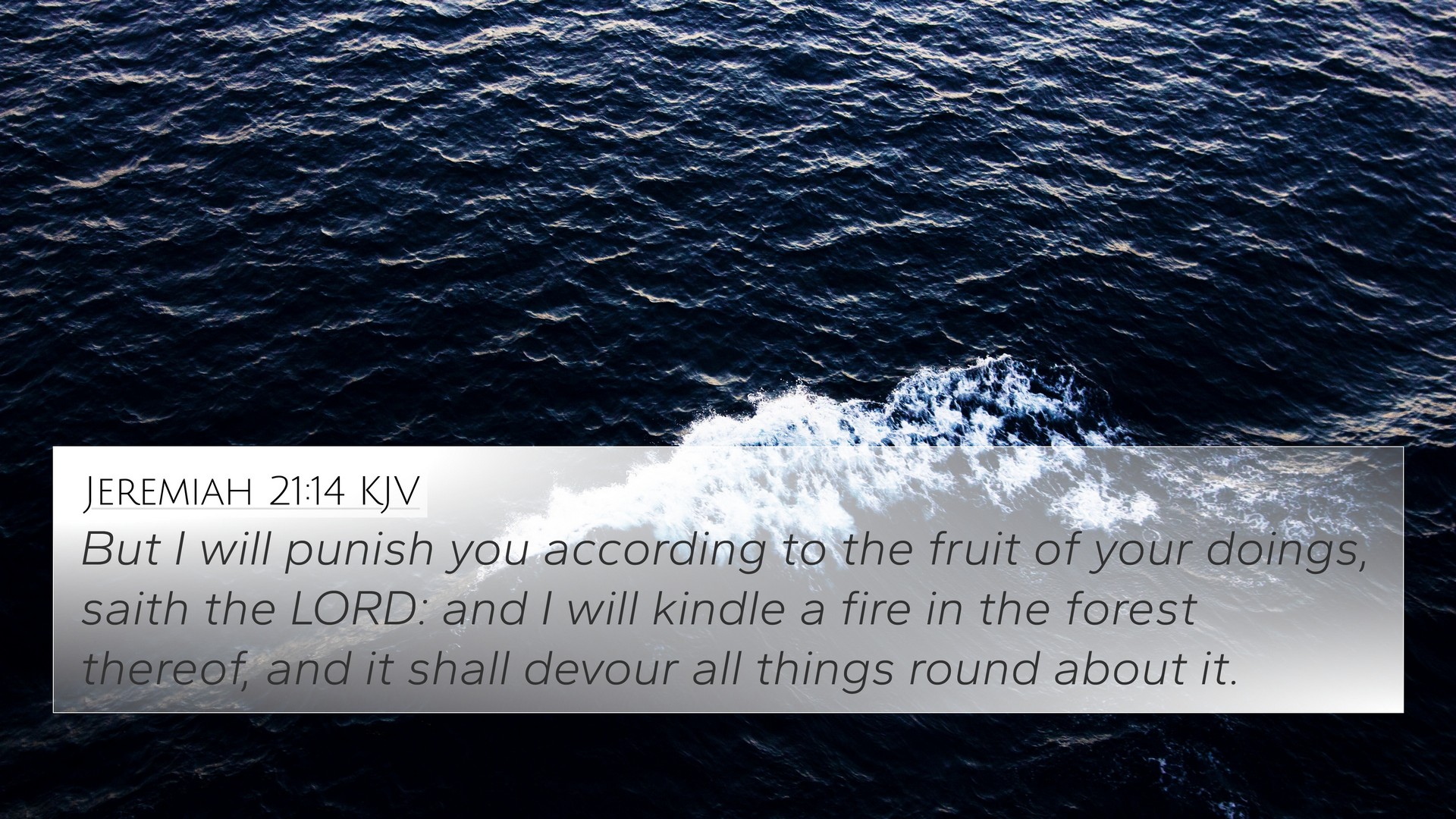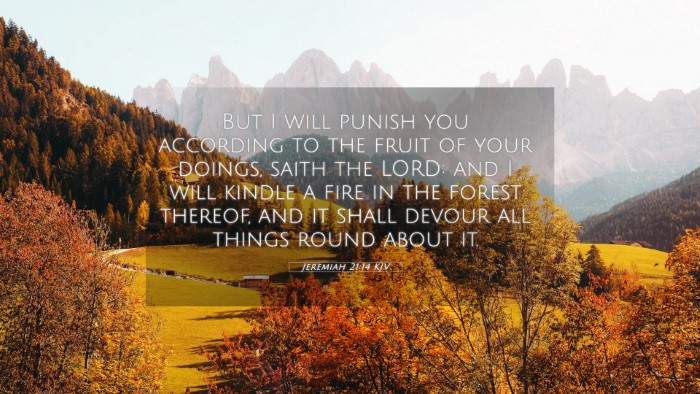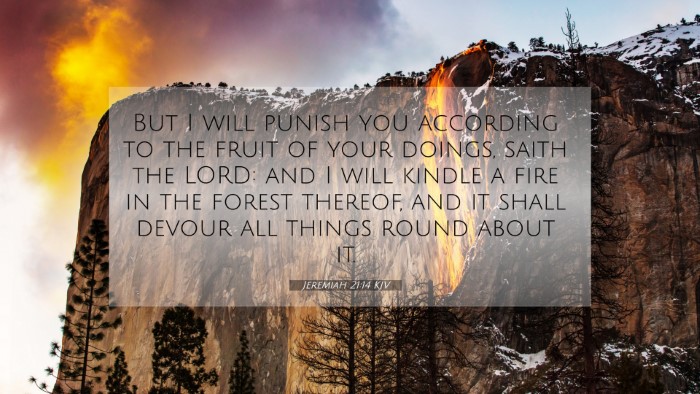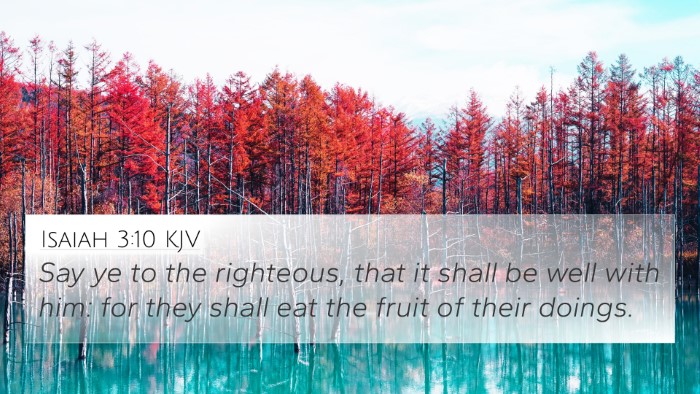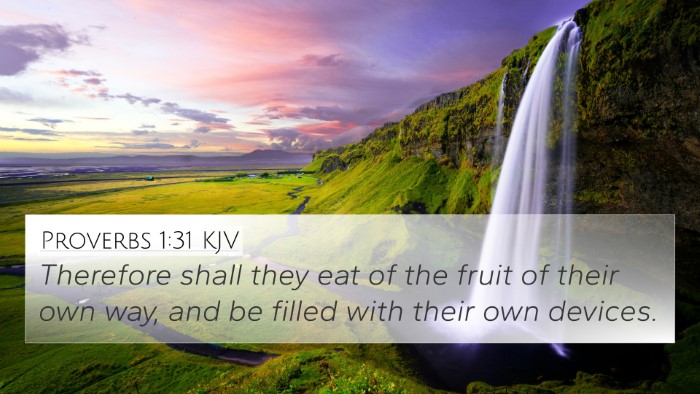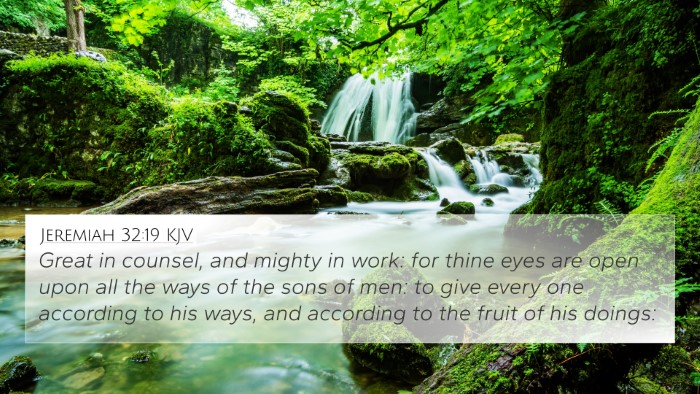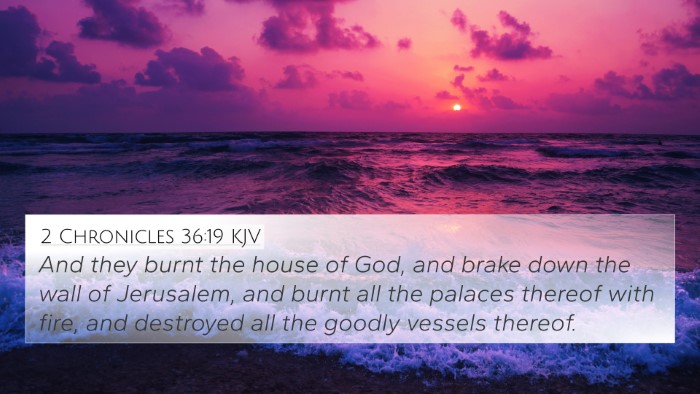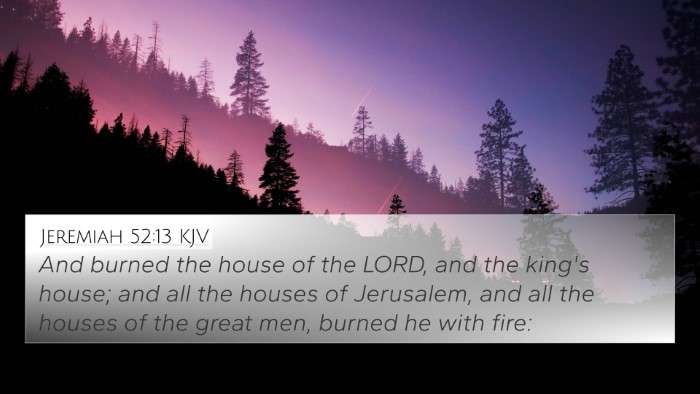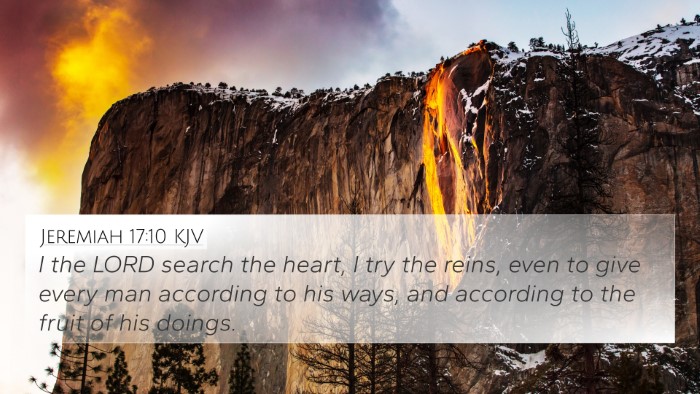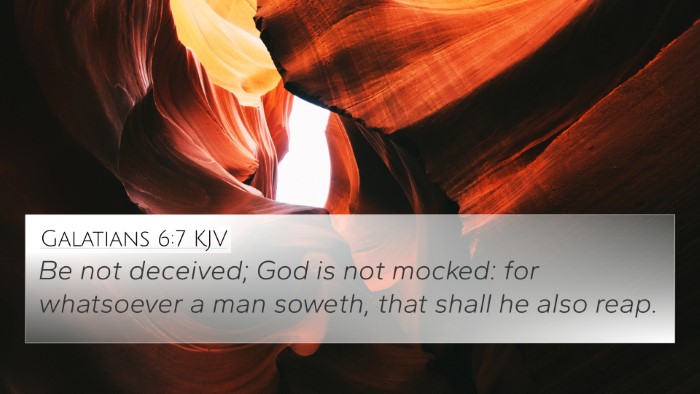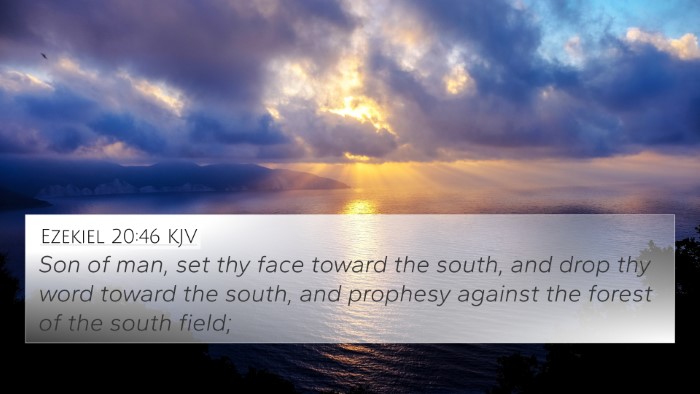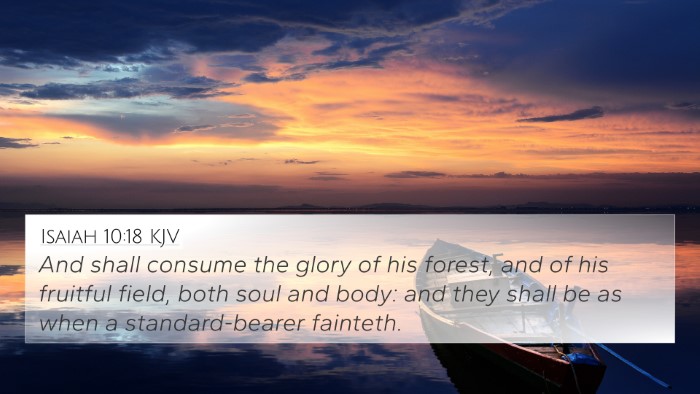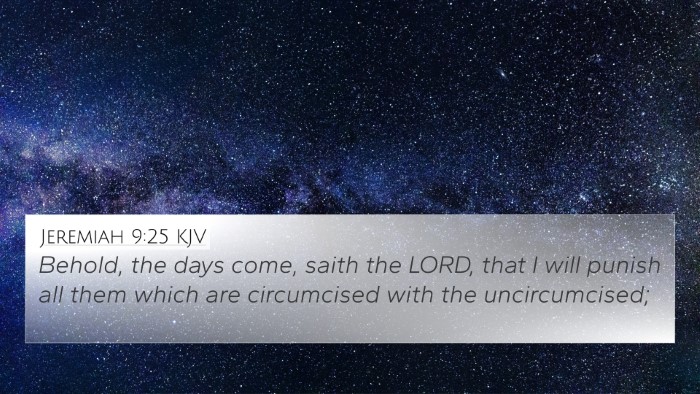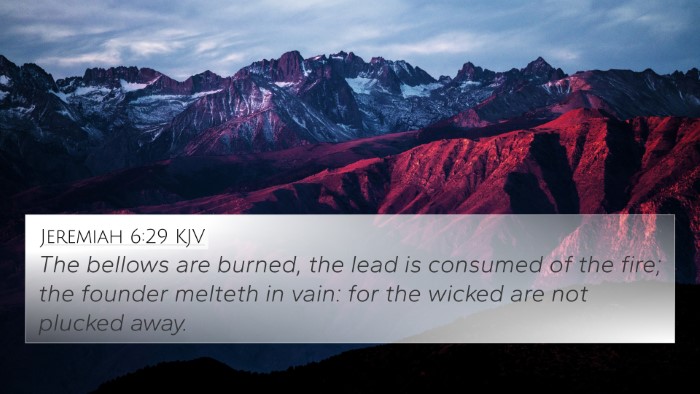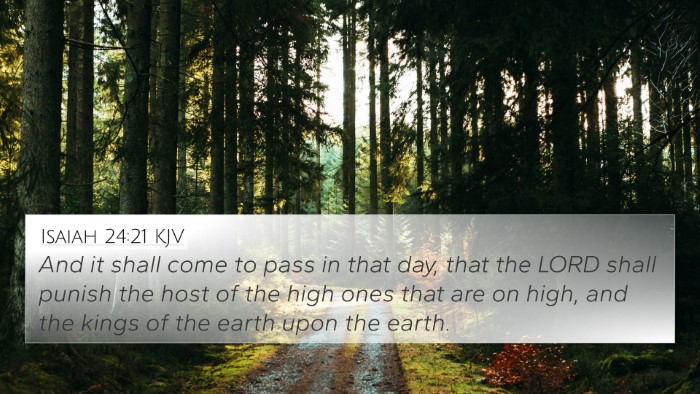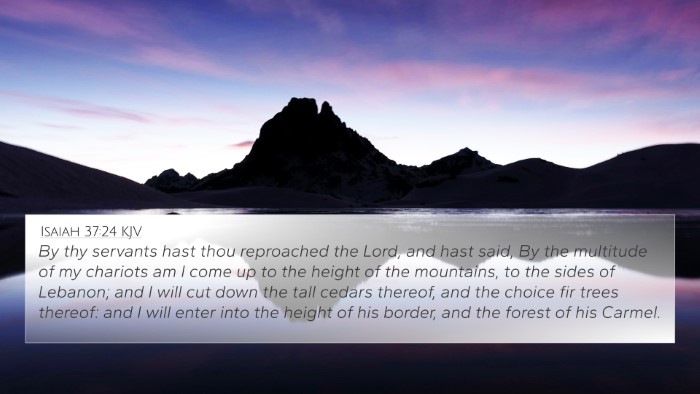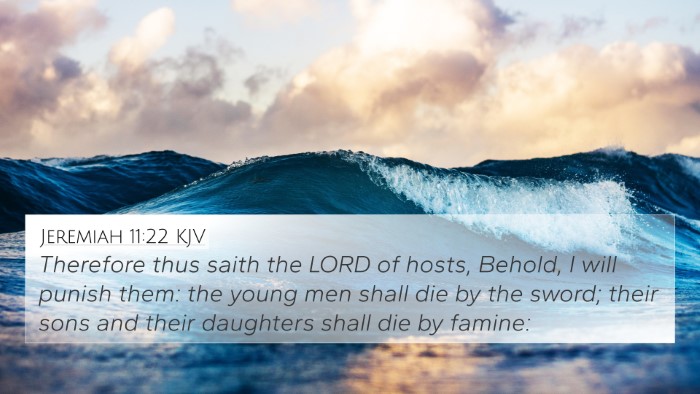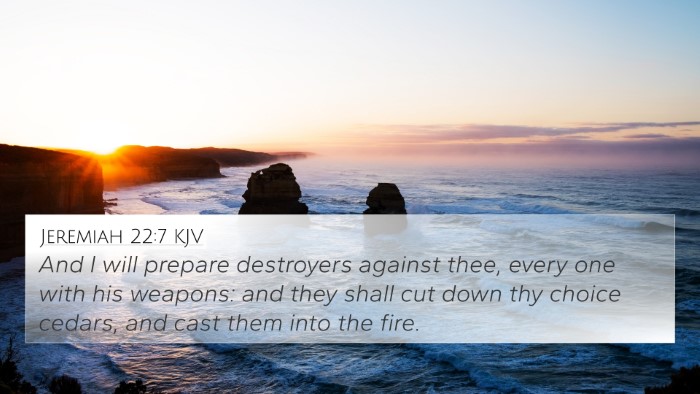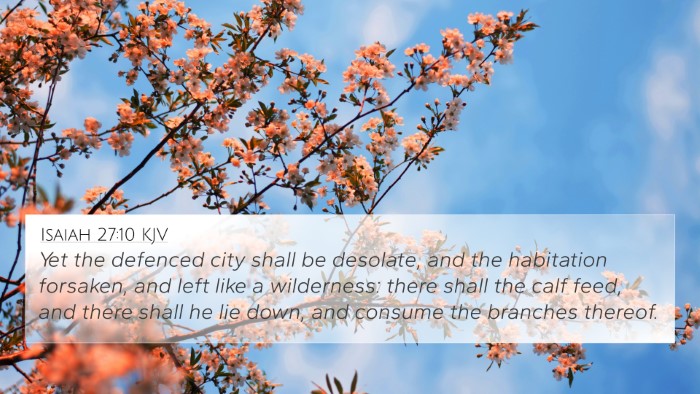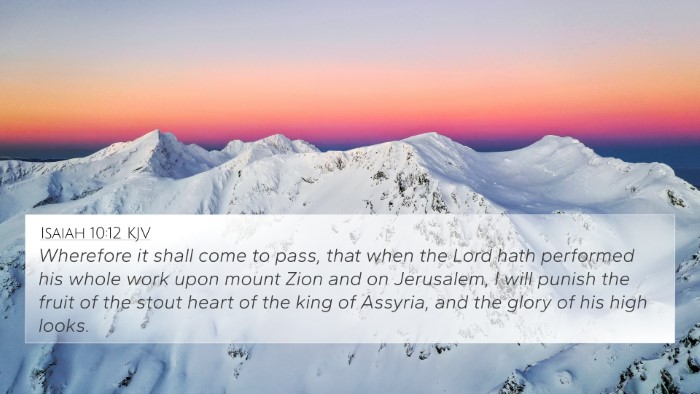Understanding Jeremiah 21:14
Jeremiah 21:14 states, "But I will punish you according to the fruit of your doings, says the LORD: and I will kindle a fire in the forest thereof, and it shall devour all things round about it." This verse carries profound implications for understanding divine justice and the consequences of human actions.
Contextual Background
The context of Jeremiah 21 involves the impending judgment over Judah due to their disobedience and rebellion against God. Jeremiah, as a prophet, is delivering God’s message during a time of crisis as the Babylonian siege begins.
Commentary Insights
- Matthew Henry: Henry emphasizes the certainty of divine punishment in accordance with one's actions. He notes that God’s justice is both reactive and corrective. The “fire” symbolizes both destruction and purification.
- Albert Barnes: Barnes focuses on the metaphor of fire representing judgment, indicating that this divine punishment is not arbitrary but stemmed from the people’s sins. He draws connections to other instances where fire is a symbol of God’s wrath throughout Scripture.
- Adam Clarke: Clarke highlights that the "fruit of your doings" implies a principle of sowing and reaping, echoing themes found in Galatians 6:7, where one reaps what one sows. He calls attention to the need for repentance to avert such disastrous outcomes.
Bible Verse Cross-References
This verse relates to several other Scriptures that expand on similar themes of divine justice, judgment, and the consequences of actions. Notable cross-references include:
- Galatians 6:7-8: “For whatsoever a man sows, that shall he also reap.” This reinforces the principle of reaping consequences from one's actions.
- Ezekiel 18:30: “Repent, and turn yourselves from all your offenses; so sin will not be your downfall.” This calls for repentance as a means to avoid judgment.
- Romans 2:6: “Who will repay each person according to what they have done.” This serves as a New Testament affirmation of the principle of divine justice.
- Isaiah 10:17: “And the Light of Israel will become a fire, and his Holy One a flame; it will burn and devour his thorns and briers in one day.” This metaphor aligns well with the fiery judgment indicated in Jeremiah 21:14.
- Proverbs 11:21: “Though hand join in hand, the wicked shall not be unpunished: but the seed of the righteous shall be delivered.” This speaks to the unavoidable nature of divine retribution.
- 2 Thessalonians 1:6: “Seeing it is a righteous thing with God to recompense tribulation to them that trouble you.” This echoes the theme of God correcting wrongdoings.
- Hebrews 10:27: “But a fearful expectation of judgment and of raging fire that will consume the enemies of God.” Again, fire symbolizes God’s judgment.
Comparative Bible Verse Analysis
When conducting a comparative study of these verses along with Jeremiah 21:14, we can identify that each passage underscores the notion of divine justice and the inevitable consequences of sin. The theme of fire in judgment serves as a great reminder in various books of the Bible, from the Old Testament prophets to the New Testament epistles, indicating a unified message about God's holiness and justice.
Connecting Themes
This verse and its cross-references highlight key theological themes worth deeper exploration:
- The Justice of God: A recurring motif where God is depicted as both merciful and just, balancing grace with the requirement for accountability.
- Repentance: The necessity for turning away from sin is emphasized across both Testaments as essential for avoiding judgment.
- Divine Retribution: The idea that actions have consequences, particularly in relation to how one chooses to live.
Understanding Biblical Cross-Referencing Tools
For those interested in exploring deeper connections between Bible verses, various tools for Bible cross-referencing exist, such as:
- Bible Concordance: A useful reference tool that helps locate verses and their themes.
- Bible Cross-Reference Guide: Guides that map out related passages, often organized by theme or keyword.
- Cross-Reference Bible Study: Methods that encourage examining related verses in context to gain fuller understanding.
Final Thoughts
Jeremiah 21:14 serves as a potent reminder of God’s justice and the importance of personal accountability in one's actions. Through the insights of historic commentators and modern study tools, believers can appreciate the depth of Scripture while also understanding the implications on personal faith and conduct.
